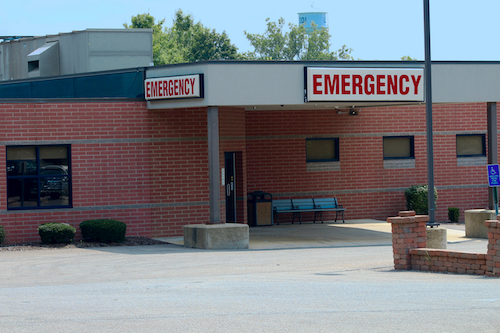
September 13, 2022 – The American Hospital Association today released a new report highlighting the variety of causes that resulted in 136 rural hospital closures from 2010 to 2021, and a record 19 closures in 2020 alone. These include many longstanding pressures, such as low reimbursement, staffing shortages, low patient volume and regulatory barriers, as well as the continued financial challenges associated with the COVID-19 pandemic. Recently, expenses for labor, drugs, supplies and equipment have also increased dramatically, ultimately causing difficulties in maintaining access to care for people in rural communities.
“While many hospitals and health systems are facing unprecedented challenges, those faced in rural America are unique,” said AHA President and CEO Rick Pollack. “We must ensure that hospitals have the support and flexibility they need to continue to be providers of critical services and access points for patients and communities.”
Rural hospitals and health systems make up about 35% of all hospitals across the country and include critical access hospitals (no more than 25 acute care beds and more than 35 miles from the nearest hospital), frontier hospitals (six or fewer residents per square mile) and sole community hospitals (hospitals for Medicare beneficiaries in isolated communities), among other Medicare designations. Rural hospitals are major economic drivers, supporting one in every 12 rural jobs in the U.S. and contributing $220 billion in economic activity in their communities in 2020.
Despite facing ongoing challenges, a number of pathways exist for rural hospitals’ financial sustainability. In addition to policy solutions aimed at specific challenges to support rural hospitals in maintaining access to care for their communities, other approaches include flexible models of care, decreased regulatory burden, various partnership arrangements and state Medicaid expansion.
Importantly, the Medicare-dependent Hospital (MDH) and enhanced Low-volume Adjustment (LVA) programs provide vital support to rural hospitals to offset financial vulnerabilities associated with being geographically isolated and having low patient volumes. However, both of these critical programs are scheduled to expire on Sept. 30, 2022, without further action from Congress.
The AHA urges Congress to extend the MDH and LVA programs (Rural Hospital Support Act, S.4009, and Assistance for Rural Community Hospitals Act, H.R.8747) to allow rural hospitals to continue serving their local communities during this unprecedented time of sustained financial pressure and historic changes in care delivery.
